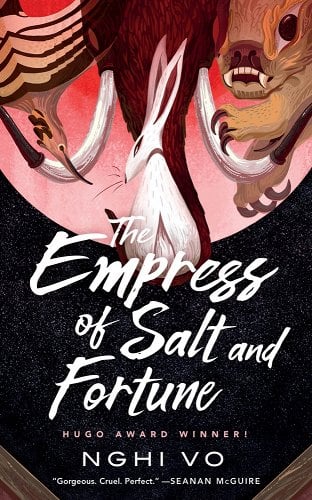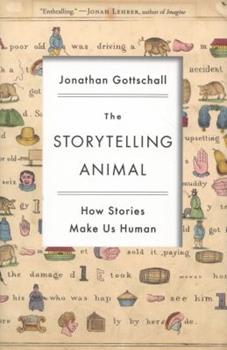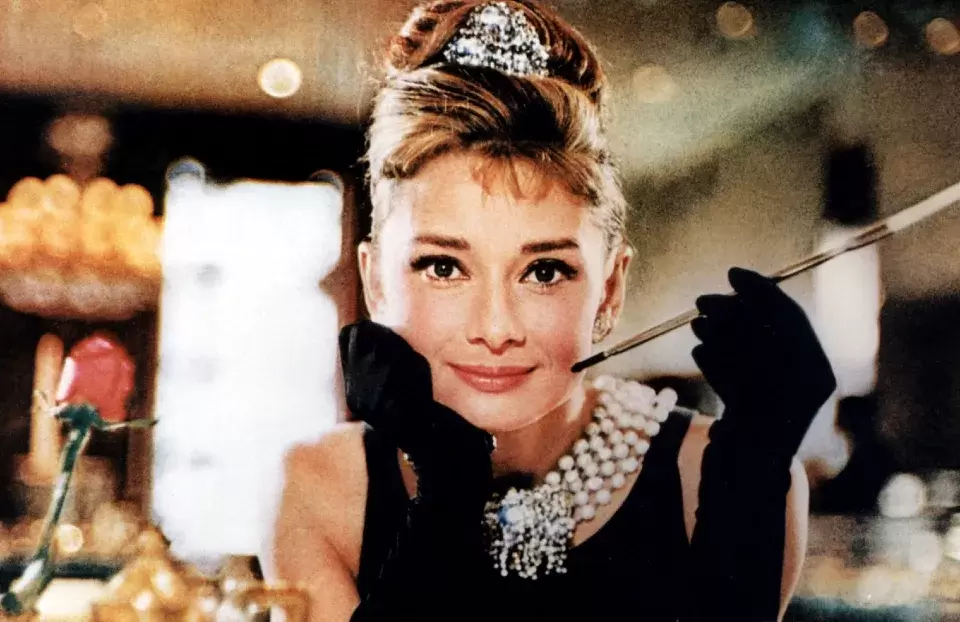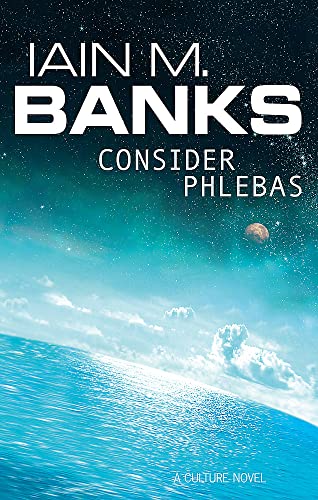|
The Empress of Salt and Fortune is a hell of a good book, the first of a series of four historical fantasy novellas by Nghi Vo. You know from the start it's going to be good because the main character is an archivist. As a cleric, Chih is responsible for recording oral history. Their interviewee is an older woman, Rabbit, who recalls attending the empress in her youth.
Some people are good writers and some people are good storytellers and the overlap of those two groups is not as big as you might expect. Vo does both things right. The style of the prose is pitch-perfect. The rhythms and inflections make you feel like you're sitting by the fire. The plot is palace intrigue and adventure and scheming. It's hard not to compare Vo to Becky Chambers, who also writes a speculative fiction series of character-driven novellas with a nonbinary protagonist, starting with A Psalm for the Wild-Built. I was also reminded of Leigh Bardugo's fable-inflected prose. Or you could compare it to Friend Green Tomatoes. A member of the younger generation interviews an older woman who recalls her friendship with another woman. They struggle to survive in a world run by abusive men, and you can never fully decide whether they were friends or lovers. (That's the movie. It's been decades, but if I recall correctly, their relationship in the movie was ambiguous and their relationship in the book was Yep We're Lesbians Now). This hit all the right notes. I need to finish listening to Cindy Kay narrate the rest of the series (I'm in book 2 currently) so I may have to skip next week's book talk. Actually yeah, that's a good idea regardless. I'm traveling to North Carolina for a few days next week, so it's a convenient time for a break. Everyone enjoy the first day of decorative gourd season!
0 Comments
Out of professional interest--first as a librarian, now as an editor--I turned to The Storytelling Animal: How Stories Make Us Human, by Jonathan Gottschall. Also I turned to it because the audiobook lasts only five hours and I didn't have much time for pleasure reading this week.
I liked the somewhat different approach here. There are tons of books about the joys of reading, and this is the first I've encountered that looks at the role of storytelling in human evolution. Though this is not a science text, I don't normally see this much science and psychology alongside my literary criticism. Storytelling, Gottschall argues, is an adaptive trait that helps us practice conflict and novelty in a safe way--not only in the stories we consume deliberately, but also in the dreams we conjure at night. Stories communicate culture and values. Think sacred texts that unite members of religious communities. Or think Peter Benchley's Jaws. Following the release of Spielberg's movie, beach vacations plummeted, thanks to the shared cultural understanding that sharks will eat you. Recommended if you need a quick, diverting read that will flatter you for being more empathetic than people who do not read books. (The pro-social benefits of reading, especially with fiction, have been amply demonstrated in studies.) Narrator Kris Koscheski was fine, but disclaimer, he's in that school of audiobook narration that applies accents to real people. For example, when he was quoting George W. Bush, he took on a Texas twang. I expect accents in my narrated fiction but they irritate me in narrated nonfiction. hadn't seen Breakfast at Tiffany's (1961), which is impossible, but it's such a cultural touchstone that I knew what to expect. I knew the main character was a socialite called Holly Golightly. I knew she had a cat named Cat.
I will admit I was mistaken about one thing. As far as I know she does not have a friend named Tiffany. I intended to dislike this book for two reasons. First, I am tired of the sort of female character whom everyone indulges, despite her poor behavior, because she is whimsical and pretty. Natasha from War and Peace is another one like that. I don't know if I mentioned I read War and Peace. I did, earlier this year actually. Second, it is literary fiction. Literary fiction is a genre where characters reflect on thoughts. Ideally the characters do this reflecting in New York City. Otherwise the book is not eligible for literary awards. Attractive young girl about town muses on life in the city and goes riding with her horses and people love her even though she kind of sucks. This is not a book I should like. This is the opposite of a book I should like. But there's a scene where Holly and the narrator shoplift some Halloween masks and I felt like I was right there with them, running on the sidewalks with my stolen mask. For literary style, character development, and atmosphere, Truman Capote reminds me of J. D. Salinger and Raymond Carver, who are obvious comparisons, and Madeleine L'Engle, who is not--but she wrote some novels that had nothing to do with time travel but lots to do with New York. I enjoyed Michael C. Hall's audiobook narration. And for those of you with the same earworm, the group was Deep Blue Something and the year was 1993. It sounds like 1993, doesn't it? Like yeah, that's what life sounded like then. On the one hand, Consider Phlebas is a smart, fast-paced opener for The Culture books, an acclaimed science fiction series by Iain M. Banks. On the other, there are two stereotypes all tied up in one villain package. One of the villains is a Jabba the Hutt knockoff who invites us to equate corpulence with corruption. Then audiobook narrator Peter Kinney comes along to give him the voice of an effete homosexual. Banks strikes me as an intelligent writer, and Kinney is one of my favorite narrators, so I am mad at both of them.
And before you go telling me how Things Were Different back then, the book's pub date is 1987. The moon landing was old enough to vote. So to enjoy this book, you'll need to have tolerance for some unfortunate stereotypes, and you'll need to have a stomach made of steel, because there is one scene that is revolting. I have a high tolerance for reading disgusting things and I about lost my lunch. If you're still with me, this is a fun space opera. I see why it endures on Best Of lists, and I expect I'll continue sampling from The Culture books. This is not the kind of science fiction that makes you contemplate your own humanity. It's the other kind. the SPACE LASERS kind. |
Book talks
When Covid first hit, I started doing book talks on social media as a way to keep in touch with people. I never got out of the habit. I don't discuss books by my clients, and if I don't like a book, I won't discuss it at all. While I will sometimes focus on craft or offer gentle critical perspectives, as a matter of professional courtesy, I don't trash writers. Unless they're dead. Then the gloves come off. Archives
February 2024
Tags
All
|





 RSS Feed
RSS Feed